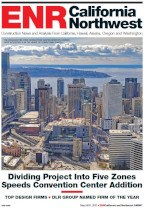
The city of Palo Alto, Calif., thought it was getting a bargain on a new library when it authorized a construction contract whose low bid came in $8 million below the estimated cost of $32 million. Now the savings are disappearing into $1.7 million in change orders, a year of delay and possible litigation at the project's end.
The Mitchell Park Library and Community Center project is surely not the first with disagreements among the project team members. But the dispute is unusual for the project's degree of transparency.
All project reports and change orders were posted online, but the documents didn't make clear the extent of the evolving dispute. Now angry city officials are demanding answers and the team faces questions about the difference between genuine openness and public relations.
Chronology of Conflict
The Mitchell Park library project is the largest expenditure out of a $78-million bond referendum passed in 2008. Palo Alto officials envisioned a 56,000-sq-ft LEED Gold-rated facility built around the site's historic California white oak.
The city chose as its designer Group4 Architecture, a San Francisco firm with prior experience planning Palo Alto libraries. The San Jose unit of New York City-based Turner Corp. represented the city as project manager. The city engineer estimated project construction costs at $32 million, but all bids were below the estimate, confirms Mike Sartor, public-works director for the city.
Flintco Pacific Construction, Roseville, Calif., won with a $24.3-million bid, and the city designated 10% more for a contingency fund. Work began in September 2010, with completion expected this month.
Flintco submitted the first five change orders to Palo Alto only three months later and submitted 40 more by April 2011.
Frequent changes and information requests continued until September, when progress reports listed fall 2012 as the new completion date. At that point, change orders totaled over $1 million, threatening to consume much of the contingency.
At a September 2011 City Council meeting, Sartor proposed adding another 15% to the contingency fund. The addition would keep the budget below the $32-million estimate, he told the council, but changes were necessary as Group4 Architecture's plans needed more detail for the tube-steel framing on the exterior and for connections at corners.
In a report distributed at the meeting, Senior City Engineer Karen Bengard added that revisions changed the exterior cladding from conventional framing to a proprietary system after construction had already started—eating up time.
The City Council agreed to add 10% to the contingency fund but requested more oversight. A month later, Flintco managers stopped signing change orders due to a dispute with the city on compensation for delays caused by the changes. The city filed subsequent changes unilaterally.
In April 2012, the completion date in Turner's progress reports was spring 2013. By last month, the City Council was losing patience, and officials called for litigation against Flintco.
What Went Wrong?
No clear picture emerges from the many change orders, progress reports, council-meeting webcasts and the project webcam posted online. Only details buried in lengthy packets from the council meetings suggest the depth of the dispute.
The relationship with all the consultants has been rough, Sartor says. But the 2011 renovation of another library project—with Turner Corp., Group4 Architecture and a different general contractor—was completed below budget and on time, he notes. Sartor says plans for that job did not require substantial revisions.
Sartor believes that, since the Mitchell Park library plans passed Turner Corp.'s constructibility review, "the number of requests for information from Flintco has not been appropriate."
Flintco Pacific President David Parkes' outlook is that the problem is in the plans. In an e-mail to ENR, he writes, "Over 1,350 Request for Information (RFI) responses and 162 Architect Supplemental Instructions have been issued by the city," and "the architect has issued approximately 700 new or revised drawings."
Group4 Architecture had been seeking permission to comment from Palo Alto officials and not responded to ENR by its print press time on June 19. Turner Corp. has deferred to Sartor's comments.
Sartor talks of a possible lawsuit against Flintco, but he hopes for settlement without litigation. "We expect to be sitting down with Flintco, Turner and Group4 and working things out at the end of this project," he says.
Flintco expects to complete the facility before 2013, and Parkes also is open to peaceful reconciliation. "We are cautiously optimistic" that the city has found a "new approach and a clearer understanding of … the absolute preceding need for a complete and thoroughly coordinated design," he says.


Post a comment to this article
Report Abusive Comment